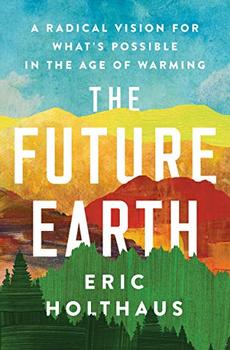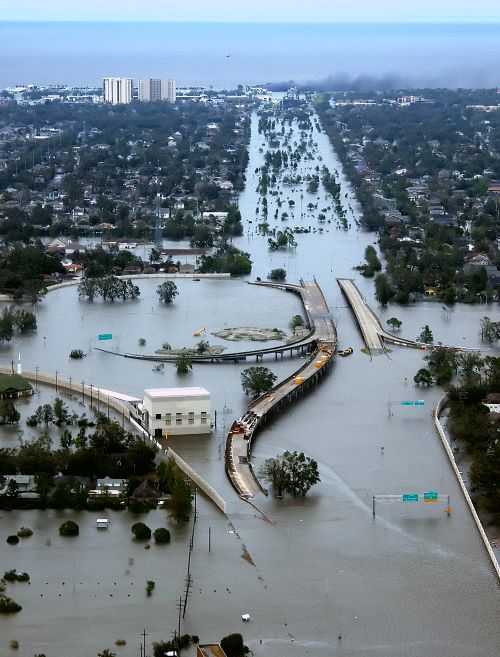Summary | Excerpt | Reviews | Beyond the Book | Read-Alikes | Genres & Themes | Author Bio

A Radical Vision for What's Possible in the Age of Warming
by Eric HolthausThis article relates to The Future Earth
 In The Future Earth, Eric Holthaus describes having climate-related depression. Over the last two decades, we have become more attuned to the mental effects of worry about the environment. In 2003, Australian environmental philosopher Glenn Albrecht coined the word "solastalgia," a variation on "nostalgia" that draws on the connotations of "desolation" and "solace." While "nostalgia" might be used to describe homesickness, solastalgia refers to a sense of mourning for a place that no longer exists. Inspired by his knowledge of the Upper Hunter region of New South Wales, a landscape irreversibly altered by coal mining and pollution, Albrecht defined the concept as "an emplaced or existential melancholia experienced with the negative transformation (desolation) of a loved home environment." Putting it in his own words, Holthaus calls this "a deep longing for the natural world that we know is never coming back."
In The Future Earth, Eric Holthaus describes having climate-related depression. Over the last two decades, we have become more attuned to the mental effects of worry about the environment. In 2003, Australian environmental philosopher Glenn Albrecht coined the word "solastalgia," a variation on "nostalgia" that draws on the connotations of "desolation" and "solace." While "nostalgia" might be used to describe homesickness, solastalgia refers to a sense of mourning for a place that no longer exists. Inspired by his knowledge of the Upper Hunter region of New South Wales, a landscape irreversibly altered by coal mining and pollution, Albrecht defined the concept as "an emplaced or existential melancholia experienced with the negative transformation (desolation) of a loved home environment." Putting it in his own words, Holthaus calls this "a deep longing for the natural world that we know is never coming back."
A few years later, Albrecht also created a pair of terms used to categorize the negative effects climate breakdown has on humans' physical and psychological health: "somaterratic" and "psychoterratic," respectively. Psychoterratic disorders include "eco-anxiety," which was recognized by the American Psychological Association in 2017 as "a chronic fear of environmental doom" that might result from personal experience of natural disasters like Hurricane Katrina. However, eco-anxiety has not (yet) been officially identified as a condition in the Diagnostic and Statistical Manual of Mental Disorders, the main handbook used by professionals to diagnose mental illness.
Eco-anxiety is not an uncommon experience nowadays, and can strike people of any age. Teenagers have perhaps been most visibly affected, though, as reflected by the youth climate strikes in many countries. "It's no wonder that young people all over the world are feeling an outpouring of climate anxiety and pre-traumatic stress syndrome," Holthaus writes. "They don't know if they will have a future at all." Greta Thunberg, the Swedish teenager who has become internationally known as a climate protestor, was driven to action by a serious depression that began at age 11 and was worsened by eco-anxiety.
A term related to eco-anxiety is "ecological grief," also known as climate grief or environmental grief. This has only become a specific research topic in the last few years. A 2018 study undertaken in Australia and Canada led Ashlee Cunsolo and Neville R. Ellis to conclude that "grief is a natural and legitimate response to ecological loss, and one that may become more common as climate impacts worsen." Holthaus envisions this grief as a collective process: "What might it mean for an entire...civilization to walk together, hand in hand, through stages of grief...at the same time?" He even closes his book with a grief exercise (created by activist and meditation teacher Caroline Contillo and life coach Lawrence Barriner II) that involves meditation, journaling and reflection questions.
The emotions behind the concepts of solastalgia, eco-anxiety and ecological grief might not be new – people have likely been struggling to cope with a diminished environment ever since the Industrial Revolution – but the terms themselves, and the academic study of climate-related mental health phenomena, are novel. And as with climate change itself, the first steps to a solution are to understand the problem and discuss it openly.
U.S. Coast Guard photo showing flooded roadways in New Orleans, Louisiana after Hurricane Katrina on Monday, August 29, 2005
Filed under Nature and the Environment
![]() This article relates to The Future Earth.
It first ran in the July 15, 2020
issue of BookBrowse Recommends.
This article relates to The Future Earth.
It first ran in the July 15, 2020
issue of BookBrowse Recommends.
Your guide toexceptional books
BookBrowse seeks out and recommends the best in contemporary fiction and nonfiction—books that not only engage and entertain but also deepen our understanding of ourselves and the world around us.